Systems change doesn’t happen overnight.
It takes persistence.
It takes leadership.
It takes resources, vulnerability, and—above all—collaboration.
At VPQHC, we are proud to recognize the significant work underway at Northwestern Medical Center (NMC) and Northwestern Counseling & Support Services (NCSS), who have partnered to implement a universal suicide screening process in the NMC Emergency Department. This transformative step ensures that every patient age 12 and older is screened for suicide risk—regardless of the reason for their visit.
Historically, suicide risk screening in emergency departments has been limited to patients presenting with mental health complaints. Yet we know that suicide risk is often hidden, and relying solely on visible cues or presenting complaints leads to missed opportunities for intervention.
NMC’s new approach changes that.
Over the first eight weeks of implementation:
251 patients were identified as having suicide-related concerns.
53 were actively considering suicide.
11 individuals disclosed suicidal thoughts despite arriving with primary medical (non-mental-health) complaints.
These data are both sobering and affirming. They confirm what research has long suggested: universal screening saves lives. By integrating universal, evidence-based screening tools into the ED workflow, NMC and NCSS are identifying individuals who may have otherwise gone unnoticed.
This work is part of VPQHC’s Vermont Suicide Prevention in Emergency Departments Quality Improvement Initiative—a multi-year, statewide effort to improve care for individuals experiencing suicidality. The initiative is supported by the Four Pines Fund, the Vermont Department of Health, and The Vermont Community Foundation, and is grounded in national best practices, including the subject matter expertise of Dr. Edwin Boudreaux, whose leadership in suicide care continues to shape tools and training across Vermont.
In addition to identifying risk, the partnership between clinical and crisis response teams has strengthened patient follow-up and continuity of care. As Kevin King, a longtime ED nurse now serving as a crisis clinician with NCSS, shared: “This approach allows us to catch concerns earlier, make more informed decisions, and connect people to the support they need—when they need it most.”
We applaud the leadership at NMC and NCSS for their commitment to this critical work, and for serving as a model of what’s possible when healthcare organizations work together toward a shared goal: preventing suicide and improving care for every patient.
To learn more about the NMC/NCSS collaboration, read the full article:
👉 NMC Collaborates with NCSS to Implement Universal Suicide Screening Process
To learn more about VPQHC’s statewide initiative:
👉 Vermont Suicide Prevention in Emergency Departments QI Initiative
